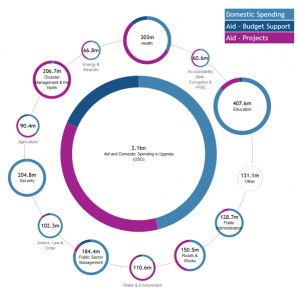Meeting the information needs of partner countries
Update: we received a very positive reply to our letter from Erik Solheim, Chair of the OECD Development Assistance Committee.
 Four years ago, donors met in Busan, South Korea, and committed to improve data on development co-operation in a way that would “meet the information needs of developing countries and non-state actors”. Next week, donors meeting in Paris at the OECD DAC have an opportunity to make a big step towards meeting this commitment. Seven organisations have written to the Chair of the OECD DAC, Erik Solheim, asking him to support the proposal.
Four years ago, donors met in Busan, South Korea, and committed to improve data on development co-operation in a way that would “meet the information needs of developing countries and non-state actors”. Next week, donors meeting in Paris at the OECD DAC have an opportunity to make a big step towards meeting this commitment. Seven organisations have written to the Chair of the OECD DAC, Erik Solheim, asking him to support the proposal.
For the last four years, Publish What You Fund has been working with a large group of donors, partner countries and civil society to ensure that the aid data donors publish can be mapped onto partner countries’ own budgets. This has some important implications – for being able to see the totality of resources in a given country in the context of the budget, use those resources more effectively, and facilitate oversight and accountability of public resources.
What are we proposing? Actually, it’s pretty simple.
1. Donors should provide a little more detail on their aid activities – specifically, by using more granular “purpose codes” that identify the nature of a project. At the moment, for example, large numbers of projects are identified as “Public sector policy and administrative management” or “Public finance management”. This covers governmental functions as diverse as macroeconomic policy, central procurement, weather forecasting, national standards development, tax, audit and aid management. If donors are more specific in identifying the purpose of their activities, mapping to budgets becomes much easier.
2. Donors should also identify (at the start of an activity, or “commitment stage”) whether their aid activities involve capital or recurrent expenditure. We’ve all heard stories in development of roads or water pumps (capital expenditure) that fall into disrepair through lack of maintenance (recurrent expenditure). This can perhaps be summarised as whether the money is to build things or to keep them going. Making the recurrent cost implications of donor activities clearer will allow donors and governments to plan and budget better, ensuring that development activities are more sustainable.
So that’s it: donors should provide a little more detail on the purposes of their activities, and make clearer whether their spending is capital or recurrent expenditure. It’s pretty straightforward, but it could have some very positive implications for development.
We hope the OECD DAC will embrace the proposal enthusiastically – based both on the merits of the proposal itself, and as a powerful signal that the OECD will fulfil its important role in meeting the information needs of developing countries.
The proposal will be discussed at the OECD DAC’s Working Party on Development Finance Statistics (WP-STAT) on 2-3 November, 2015. The letter to Erik Solheim, Chair of the OECD Development Assistance Committee, is co-signed by:
- Winnie Byanyima – Executive Director, Oxfam International
- Neil Cole – Executive Secretary, Collaborative Africa Budget Reform Initiative
- Harpinder Collacott – Executive Director, Development Initiatives
- Kristina Klein – CEO, Open Knowledge Foundation Germany
- Warren Krafchik – Executive Director, International Budget Partnership
- Rupert Simons – CEO, Publish What You Fund
- Cobus de Swardt – Managing Director, Transparency International

